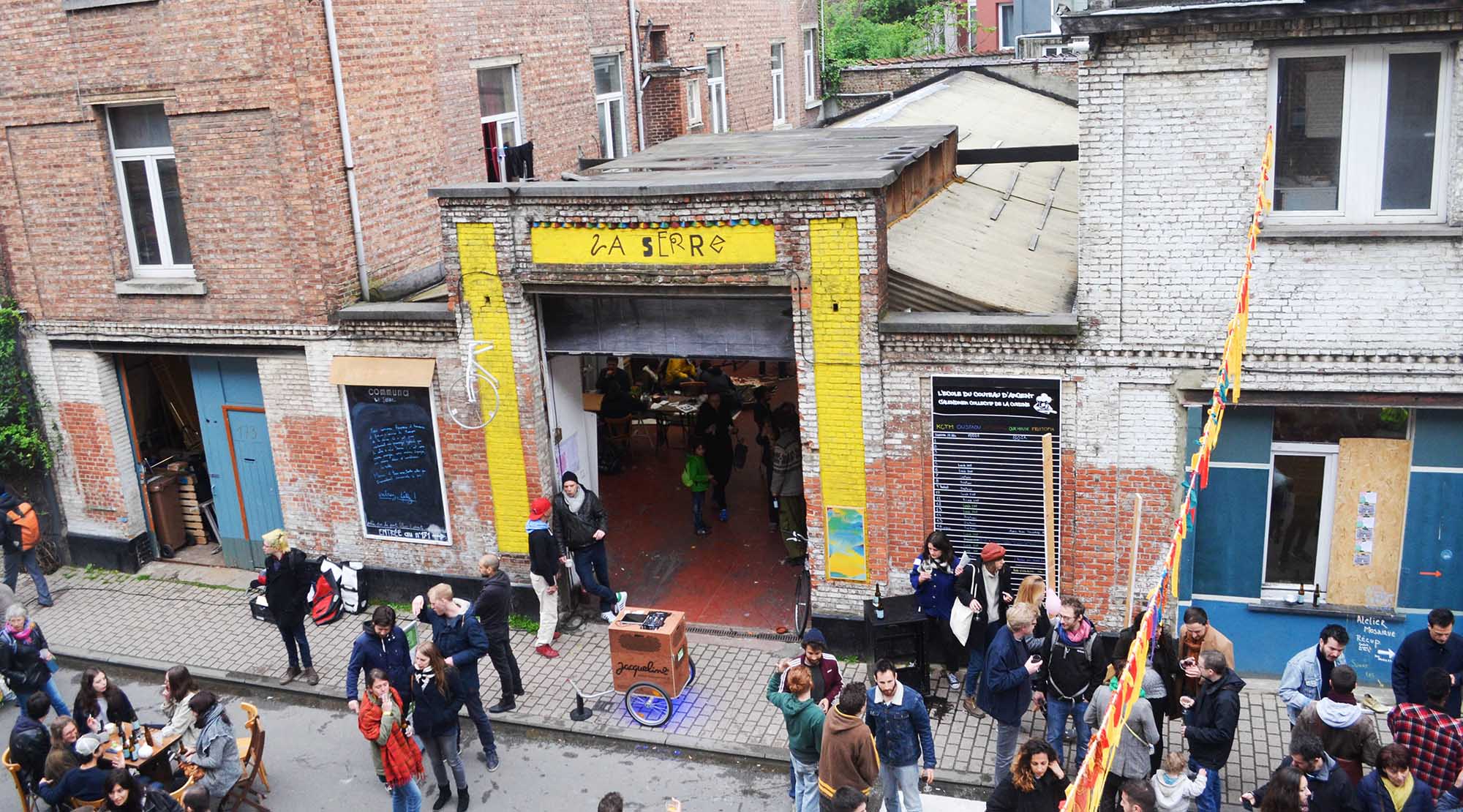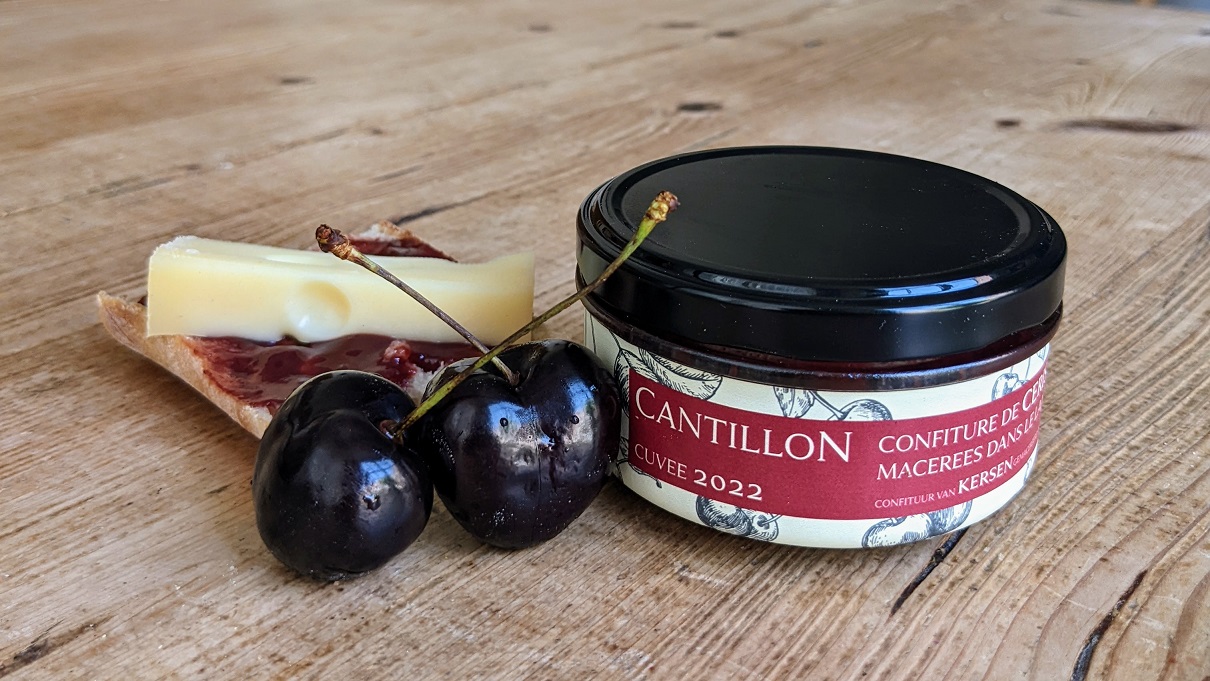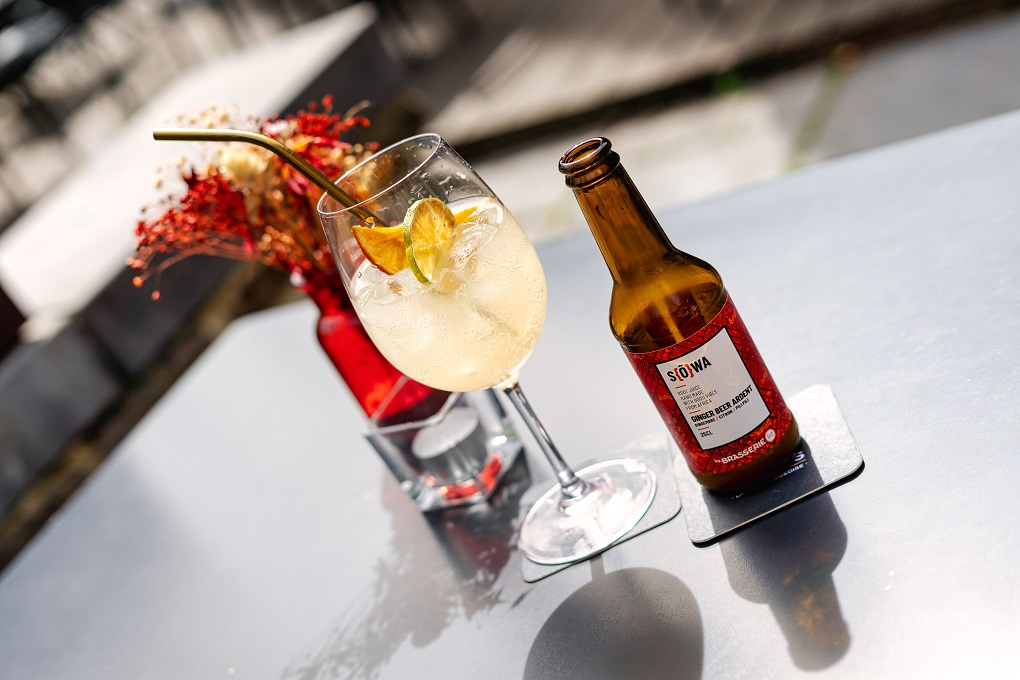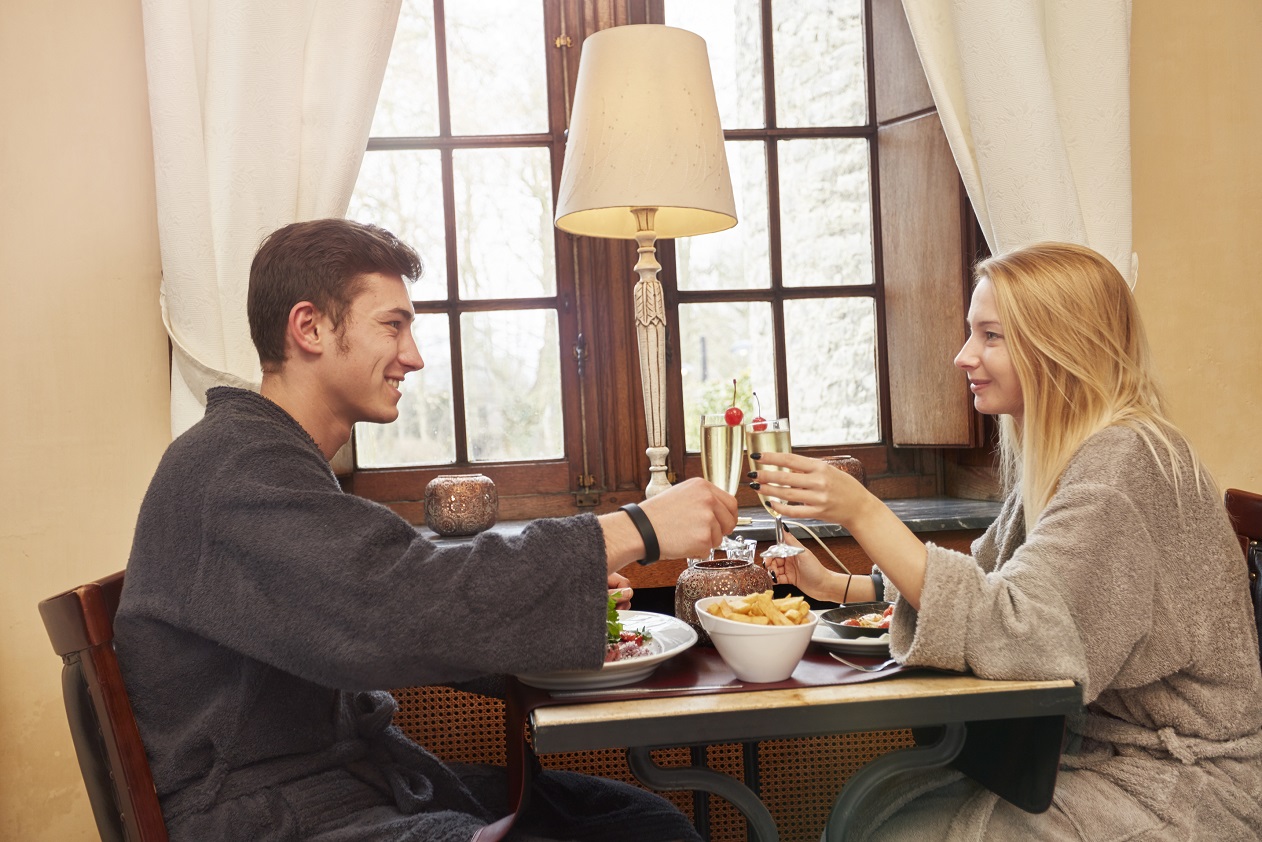What are the most delicious foods, refreshing drinks, coolest cafés and swankiest restaurants in Brussels at the moment? Here are some of the best.
Food: Confitures Cantillon
The circular economy is a trendy subject in Brussels. Its principle: some company’s waste can become another company’s raw matter, and so on. For Rob Renaerts, founder of Coduco, a Brussels sustainable food consulting firm, a particular concern has been the huge quantity of waste from fruit beers produced by breweries.
The most famous is Kriek, made from the maceration of cherries in lambic (spontaneous yeast fermentation in the Brussels area). Belgian breweries have expanded the range of fruit beers with raspberries, peach, apricot and even plums. Once the maceration process is finished, there is silt at the bottom of the tanks made of dead yeast (‘lees’) and fermented fruit pulp.
Renaerts intuited that something could be made from this silt, still highly flavoured with fruit. He approached Brasserie Cantillon, the oldest and most famous brewery in Brussels and proposed to test the feasibility of other food products with the silt that would be dumped otherwise. After many trials, he and his team obtained a perfect fermented fruit puree that could be used in different applications by various food transformers.
The puree was picked up by ice-cream makers Il Monello and Zizi (sorbet); the restaurants Humus x Hortense (dessert) and Les Terres d’ici in La Hulpe (as a starter, combined with mozzarella); the pastry shop Succulente in Anderlecht; and the caterer Organic (in a sauce to accompany duck).
The great thing about this puree is that it can be paired with savoury dishes thanks to its slightly bitter and acidic taste. Renaerts combined it with sugar to make it an incredible jam. The texture is more silky compote than jam, and you can taste the fruit, but with a twist, a hint of yeast that brings out its taste, less sweet than a usual jam. The peach jam does not even taste peach but amaretto (almond).
Renaerts now also works with De Drie Fonteinen brewery in Vilvoorde and others are queuing. He is poised to find a distributor for retail shops, but the Cantillon jam can already be bought at the Cantillon brewery and beer museum itself. They are made by Spooneke, a baby food jar maker (with its brand Into the Spoon) which employs disabled people.
Earlier this year, Cantillon won a Be Circular Prize for the project, as one of the best circular economy initiatives in the Brussels Region. There is still room to improve the project’s sustainability and make it fully organic, especially with the sugar (Tirlemont, so far), but it remains an incredible taste journey, a genius innovation and a new kind of unknown jam for connoisseurs. Foodies and beer lovers will love it.
Cantillon 56, Rue Gheude 1070 Anderlecht www.cantillon.be
Drink: S{Õ}WA
This strange name means SOft drinks from WAllonia, for those who did not pick it up (it also means “the other day” in Bambara, a language from the Sahel). The Brasserie C in Liege went back to the roots of the craft, when beer brewers made also lemonades. The brewery has developed a whole range of crafts sodas, on offer at their in-house restaurant.
These new flavours expand the range of locally produced non-alcoholic drinks in Belgium. They all have natural ingredients like fruit, flowers and/or herbs. The lemonade is made from lemon, lime and mint, and is very refreshing. Their iced tea is made with black tea, peach and elderflower.
The brewery also works with a cooperative of Senegalese women to produce sodas with African ingredients: its Ginger Beer Ardent is flavoured with ginger, lime and a touch of pili-pili; its Bissap is made with hibiscus, mint and vanilla, a very popular drink is West Africa; and its Baobab is made from an African fruit and inspired with a popular drink in East Africa. And last but not least, Brasserie C also proposes one of the few Belgian tonic waters, Tonic Smash, which bitterness comes from a hop infusion and echoes the brewery’s IPA ‘Smash’. Perfect to accompany one of the 200+ Belgian gins.
S{Õ}WA Brasserie C 14/24, Impasse des Ursulines 4000 Liège www.brasseriec.com
Café: La Serre
Brussels is bursting with unexpected places to have a drink, a snack or even an unusual meal. One of them is La Serre (‘the greenhouse’), a local self-managed meeting place in the heart of Ixelles, between Square Jourdan and Flagey. It has a particular status: it is an occupation temporaire, or temporary occupation, meaning that the place will, one day, be destroyed or completely retrofitted to be used for other purposes.
In the meantime, Communa, an association specialised in managing temporary occupations, makes the place available to various associations and people at a ‘democratic’ (read: discounted) price since 2017. Temporary occupations are a typically great laboratory to test new concepts of social activities at low cost.
All the staff at La Serre are volunteers. The bar is open when there are activities run in La Serre, including Monday night, Tuesday 12.30am-5pm, Thursday 4-7pm and Sunday when people are cooking. It sells a couple of beers from Brasserie de la Senne and Illegaal, Sans pap’ and Brunehaut (organic and gluten-free), as well as local soft drinks from FruitCollect and Cuarenta, and locally roasted Mame Noka coffee. Check the calendar, there are always events and activities on top of the regular ones, which drive different audiences.
La Serre is distinguished by its soul: you feel the vibe of this very residential though popular area and meet lots of people you would not normally see. There are eight permanent artist workshops and four flats in the building, plus a series of associations that regularly use the premises for their activities: Singa welcomes newcomers (asylum seekers, refugees, undocumented people) in Brussels; Tournevie is a ‘tool library’; Ateliers de la Rue Voot teaches bike repair skills; a GASAP distributes weekly organic veggies & fruit baskets.
Since 2020, there has been a regular weekly ‘fourchette solidaire’, a pop-up restaurant animated by Centre du Service Social which offers for a very low price (a free contribution in a piggy bank, literally) a meal cooked by 40 volunteers from Bouche à oreille, made with unsold food from a couple of organic shops.
It is the perfect place to eat food cooked with love and share it with locals. The single menu is always a surprise: a soup, a one-dish meal and a dessert. You eat like at home; you feel at home. In a couple of years, the commune will retrofit the whole building to sell flats to low-income inhabitants. In the meantime, do not hesitate to enjoy this incredible, 100% Brusseleir merry mess.
La Serre 171, Rue Gray 1050 Ixelles communa.be/les-lieux/la-serre
Restaurant: Thermae Boetfort
If you want to spend an afternoon, an evening or even a day in a plush spa, you will have to leave Brussels by car, as there are a few in the capital region’s surrounding Flemish areas. Each has its personality, but one thing is sure for all of them: their naked areas are much, much bigger and more fun than their bathing suit areas. It is up to you what option you chose but you will end up at the restaurant in a bathrobe.
The Boetfort spa is based in a 400-year castle near the Melbroek military airport and hosts nine saunas in total. On the ground floor of the castle, you can enjoy a restaurant, either inside the castle in a wooden decor, under a glass veranda with very cosy lighting in the evening or outside on the terrace touching the stunning park.
The kitchen is open every day from 12am to 10pm. The service is very professional and incredibly quick. The drinks section is huge: you may be thirsty after a few saunas, jacuzzi or hammam. It includes several delicious cocktails and mocktails, as well as the Boetfort beer, specially brewed for the spa at Proefbrouwerij near Ghent.
The wine list is reduced but affordable. You should count around €15-18 each for a snack such as toasts with salmon, shrimp and/or cheese croquettes: a classic Belgian menu. Main courses are more in the realm of €20-25 and include pasta, salads, poke bowls and meat or fish, with side dishes. Portions are generous but do not eat too much: there is also a tasty dessert menu that includes homemade chocolate mousse and tiramisu with speculoos, a Belgian classic.
So, no haute cuisine here, but a perfectly cooked menu with a lot of choice in a very, very unusual place to have lunch or dinner. You will feel you are on holiday, even if you only come here for a few hours of total relaxation and bring back home the herbal scents of the saunas you will have visited. See you there?
Thermae Boetfort - Sellaerstraat 42, 1820 Melsbroek - www.thermae.com





